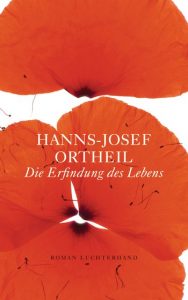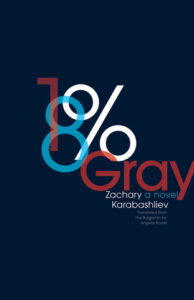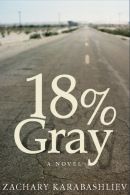Johannes, the narrator of the novel Die Erfindung des Lebens (The Invention of Life), grows up in a small family with his loving parents in Cologne in the 1950s. But Johannes’ start in life is overshadowed by a history of traumata and terrible losses in the past – experiences that made his mother literary speechless and that also affect Johannes: he is mute, like his mother.
The first part of the book describes the life and daily routine of the three members of the family who lead an almost symbiotic life with very few contacts outside the family. Shopping or playing on the playground in the presence of his mother are a real torture for the child due to the lack of understanding and empathy of the biggest part of their surrounding. Only the walks with the father who takes him to places where Johannes is accepted without questions asked, are a temporary relief from the boy’s loneliness.
But things are changing step by step, thanks to a benevolent uncle who presents his piano to Johannes’ mother; she was once a talented pianist. Reluctantly, she takes up playing again and starts to teach her son too: for Johannes the beginning of a new life devoted to music – and also the proof that he will be more in life than ‘a mute idiot’, as his environment, including his school teacher, frequently tells him.
While music is one of the triggers for a long and painful process of becoming a ‘normal’ child (and also for his mother to regain her speech), it is finally the father who with his positive attitude to life and his understanding what is good for the development of his son, starts a program that could not have been better conceived by an experienced psychologist.
This program includes long walks in the country side, lessons in drawing, regular writing exercises in order to memorize new words, expressions and discoveries in nature, and also physical activities that strengthen Johannes also in this respect. That all this is done in the absence of his mother may be the key to break the extremely strong bond with her. From the father Johannes learns also why his mother is like that – Johannes had four brothers, but they all died before his birth. The circumstances how all this happened are revealed only much later by an uncle of Johannes.
When the recovery of this family is already a miracle, the way to breaking the spell of the past is just the first part of the novel. Johannes has to go through many difficult experiences in school and later life – he has always problems to develop close relations with other people and also his dream to become a professional pianist will not become true despite his great talent. Devastated he returns from the Conservatorio in Rome to live again with his parents – but again, life has a surprise for him…
This novel is written in the tradition of the Entwicklungs- and Künstlerroman; Johannes is writing this novel in Italy, where he spent the happiest part of his life – also this a reference to many literary works of the German tradition (there are of course a few Goethe references as well in the text). Johannes finds in Italy not only his true vocation, and the memories of his love story with Clara when he was a student; he rediscovers what life is about, grows close to a woman and her daughter, and in the end all is (possibly) well…
You know, I am not taking up easily books with almost 700 pages, like the edition I was reading. Such a chunky book requires a lot of time and we all can remember experiences when it turned out not to be worth it. Here this was not the case. I enjoyed Die Erfindung des Lebens (The Invention of Life) thoroughly.
I could immediately relate to Johannes and his fate and although the novel is full with descriptions of daily life, I never found it dull or boring. Ortheil is an experienced novelist, but it was a good decision to tell the story of his life (because this novel is almost an autobiography) when he was already in his fifties; otherwise he would have been too close to the young Johannes and this lack of distance would have spoiled this very touching book, I suppose. It is – beside other things – a declaration of love to Italy, and also to Ortheil’s father; Johannes’ father in this novel is one of the most endearing portraits of a father I know of in literature.
The book is not yet translated in English. Publishers, where are you?
Hanns-Josef Ortheil: Die Erfindung des Lebens, Luchterhand, München 2009
The author talks here about his novel and its autobiographical background (in German).
© Thomas Hübner and mytwostotinki.com, 2014-5. Unauthorized use and/or duplication of this material without expressed and written permission from this blog’s author and/or owner is strictly prohibited. Excerpts and links may be used, provided that full and clear credit is given to Thomas Hübner and mytwostotinki.com with appropriate and specific direction to the original content.






 Facebook
Facebook RSS
RSS Twitter
Twitter